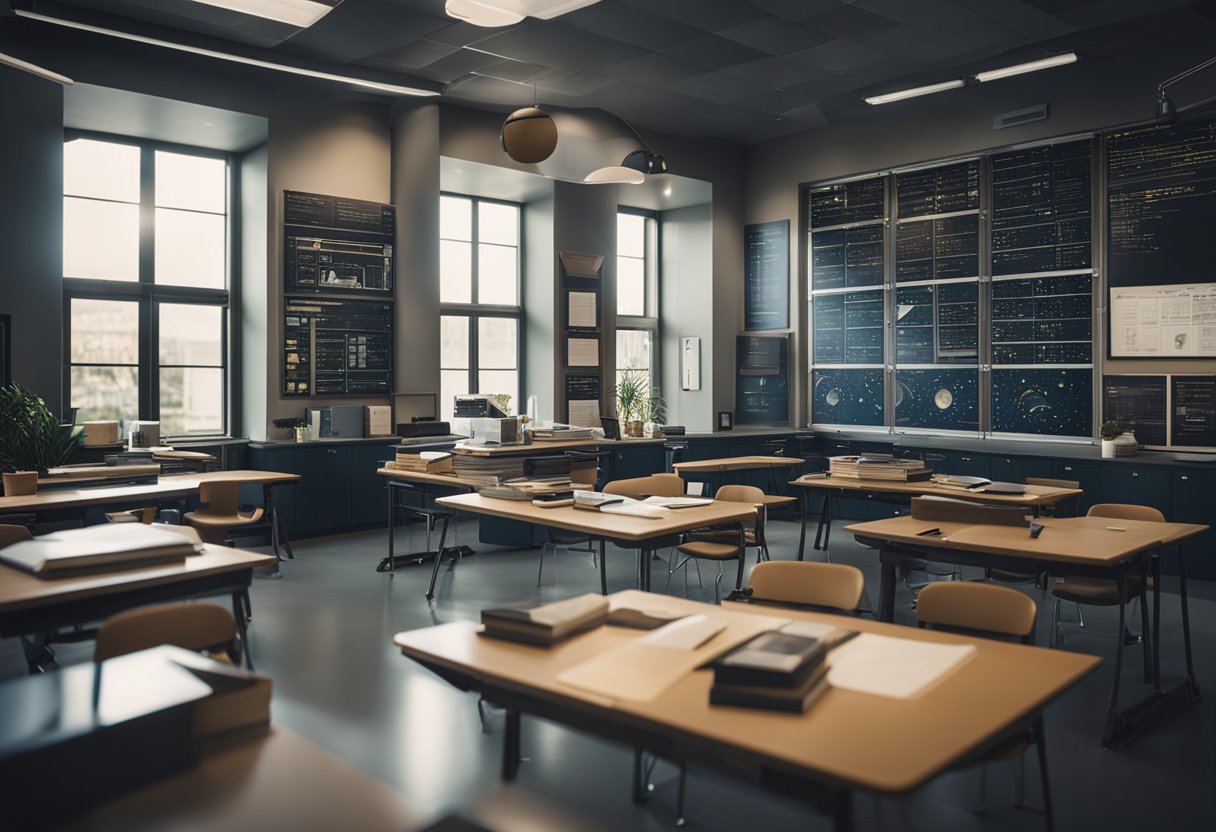
Space exploration captivates the imagination and serves as a powerful tool for education. By integrating space topics into school curricula, we ignite a passion for learning and discovery among students. It is our responsibility to harness this potential to advance education. Through organisations like NASA and various educational programs, we’ve seen significant investment in STEM subjects, directly linking the excitement of space exploration with enhancing students’ scientific literacy and understanding.
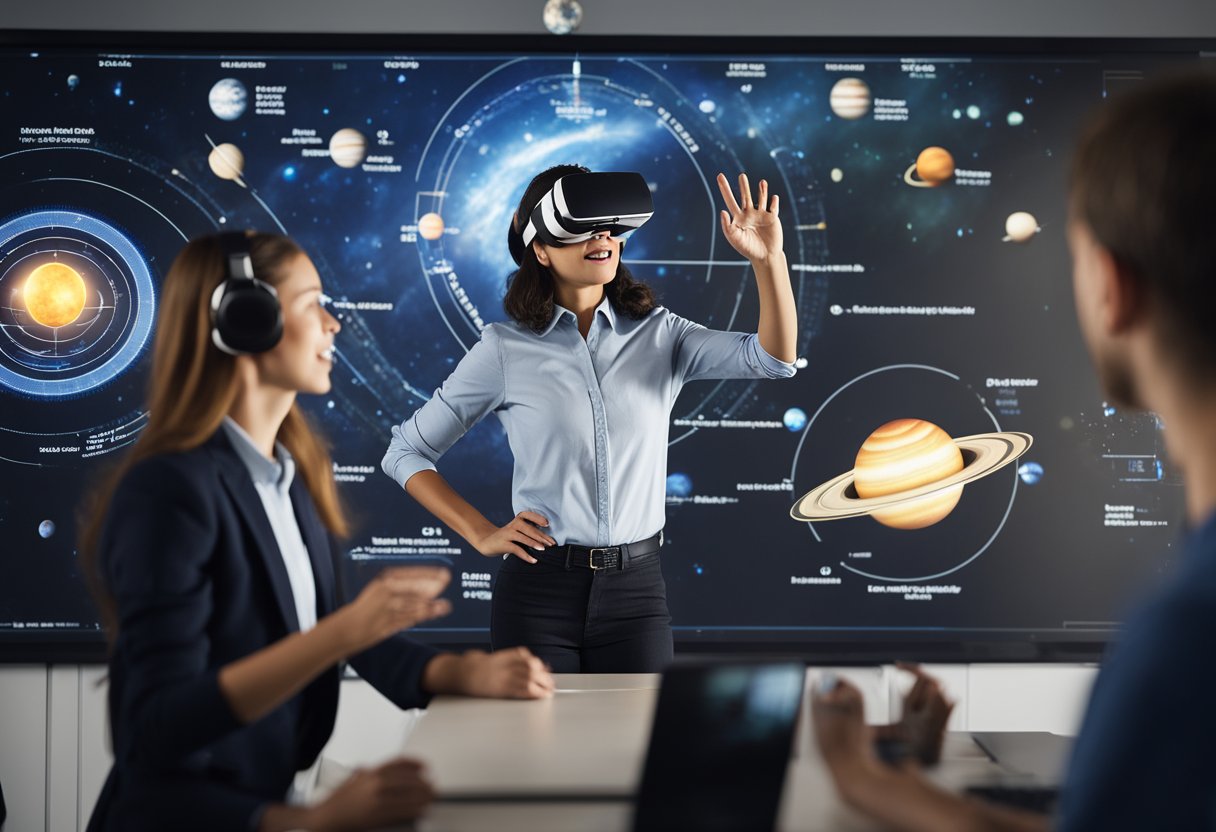
We recognise that space-themed educational programs and resources provide not only knowledge but also inspiration, often leading to hands-on experiences that encourage critical thinking and problem-solving. The influence of space exploration on education extends to promoting equity and diversity, ensuring that learners from all backgrounds have the opportunity to engage with this fascinating subject matter. Moreover, collaborations between industry and educational institutions pave the way for future leaders who are well-versed in space science and its applications.
Incorporating space exploration into STEM education opens up a universe of possibilities for students to engage with science and technology in a context that inspires and educates.
Space exploration serves as a catalyst for enhancing science and mathematics comprehension amongst students. Our approach enables them to apply mathematical concepts through practical, space-related problems, fostering a deeper understanding of mathematical principles. In schools, space-themed projects can stimulate interest in STEM fields, which is crucial for the development of next-generation innovations.
Teachers facilitate this growth by integrating space-related content into their curriculum, effectively bridging the gap between theoretical and applied science. Technology and engineering also play significant roles, as students explore the design and function of spacecraft or satellite technology. We encourage this exploration through opportunities, such as those highlighted at Space Foundation, where space principles are used to integrate STEM in various educational settings.
The impact of space exploration in STEM education is not limited to enhancing student engagement; it fundamentally transforms the way they perceive our universe. STEM·E explores the multifaceted role of space exploration in today’s society, further underlining how critical it is to introduce students to the realms beyond our planet.
Knowledge gained through this education paradigm propels students to envision a future woven with space technology. STEM education, enriched by the context of space exploration, equips them with the skills to contribute to sectors like space tourism, as detailed on websites like SpaceVoyageVentures.com, heralding a new era in civilian space travel.
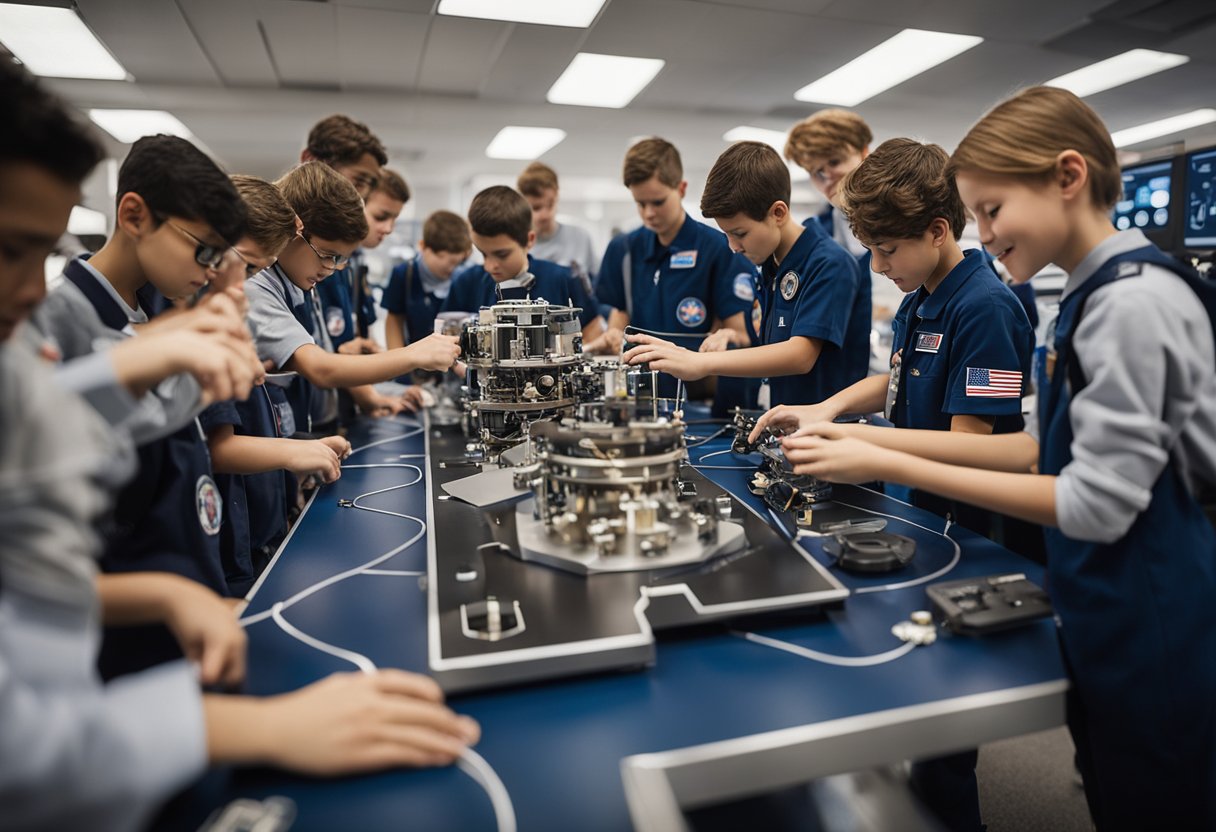
We recognise the profound influence that the National Aeronautics and Space Administration (NASA) has on education, particularly in science, technology, engineering, and mathematics (STEM). Through strategic collaborations and the dissemination of knowledge by experts, NASA plays a critical role in shaping the educational landscape.
NASA has established a myriad of partnerships with schools and educational organisations across the United States. These include significant agreements with the U.S. Department of Education, aimed at enhancing STEM education. One example is a memorandum of understanding that highlights joint endeavours to bolster the quality and reach of STEM programmes, with the aim of developing a highly skilled workforce geared towards innovation and exploration.
Bringing real-world experiences to classrooms, NASA experts serve as educators and role models, inspiring the next generation of scientists and explorers. These experts share their wealth of knowledge and experience, covering topics from aeronautics to astronautics and beyond.
Through these efforts, NASA experts directly contribute to the enrichment of the educational environment and encourage students to pursue careers in STEM-related fields.
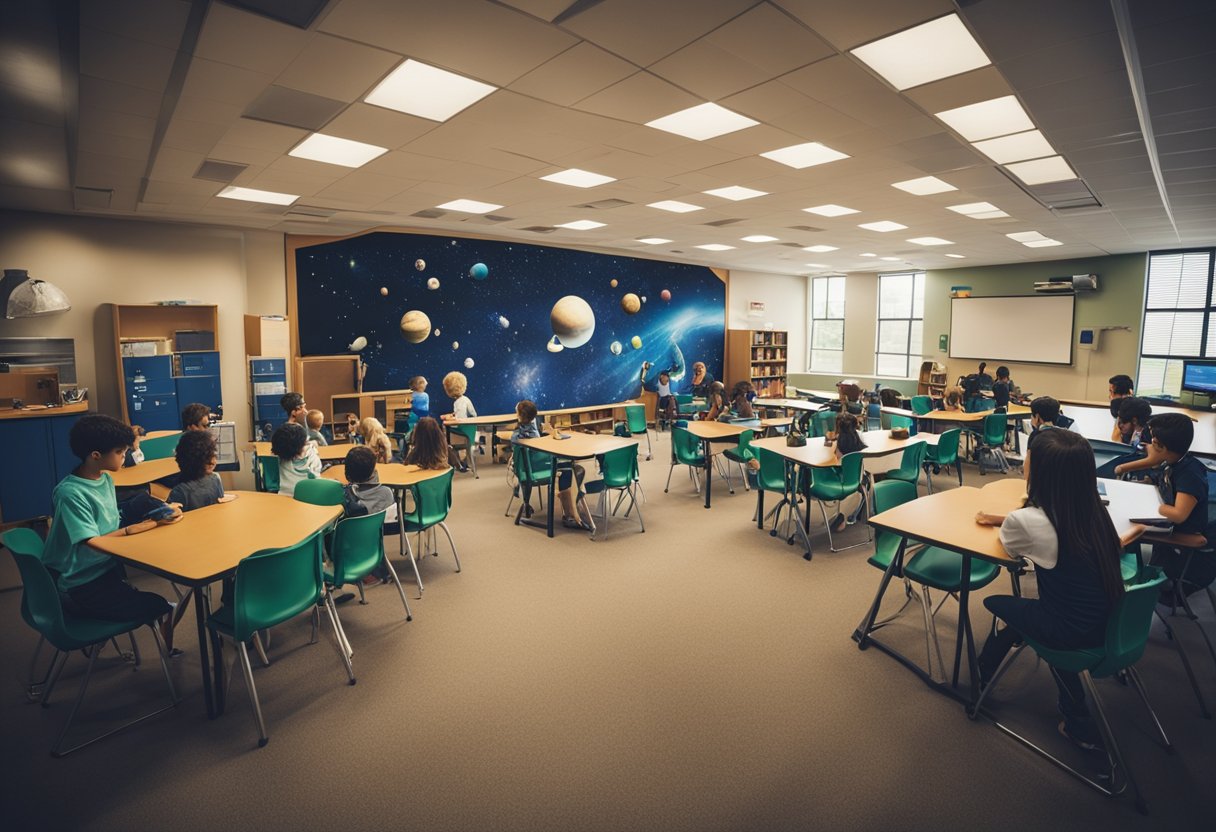
In our journey to bring the cosmos to the classroom, we’ve curated a selection of space-themed educational programs tailored for educators aiming to ignite a passion for space exploration among students.
Each year, we eagerly participate in the Space Exploration Educators Conference (SEEC), where teachers from all around the globe gather to share and discover innovative ways to engage students with space exploration topics. Renowned for its inspiring speakers and practical workshops, SEEC offers educators not only a trove of resources but also the opportunity to earn continuing education credit. Our focus is on practical applications of space principles, integrating them with science, technology, engineering, and maths (STEM) education for a comprehensive learning experience.
Our collaboration with NASA has been fundamental in hosting events and workshops that serve to enhance the educational landscape. Through initiatives like the NASA STEM Opportunities and Activities, we connect with a broad audience that includes middle schools, high schools, colleges, and universities. Our workshops, often conducted by teams of professionals including astronauts and scientists, provide a close-up look at the challenges and triumphs of space exploration. This fosters a dynamic learning environment where students can not only witness the wonders of space but also engage with them firsthand.
While we focus on these educational endeavours, we also keep an eye on the horizon, monitoring developments in space tourism—an exciting frontier that is fast becoming a reality. For those interested in the burgeoning arena of space tourism, SpaceVoyageVentures.com serves as a repository of information on current and future opportunities to venture beyond Earth’s atmosphere.
Before diving into the intricacies of curriculum development, it’s imperative to acknowledge the spectrum of opportunities that space topics introduce to classrooms. These topics serve as a nexus between various disciplines like science and engineering, offering educators a conduit to inspire students with the wonders of the cosmos.
When we consider infusing space exploration into school curricula, the challenges are manifold. Educators must strike a balance between established educational requirements and the allure of the ever-evolving field of space science. In the development of such curricula, the primary hurdles include:
By confronting these challenges head-on, we can develop curricula that are not only educational but also inspirational, fostering a new generation of thinkers enamoured with the possibilities that space exploration holds.
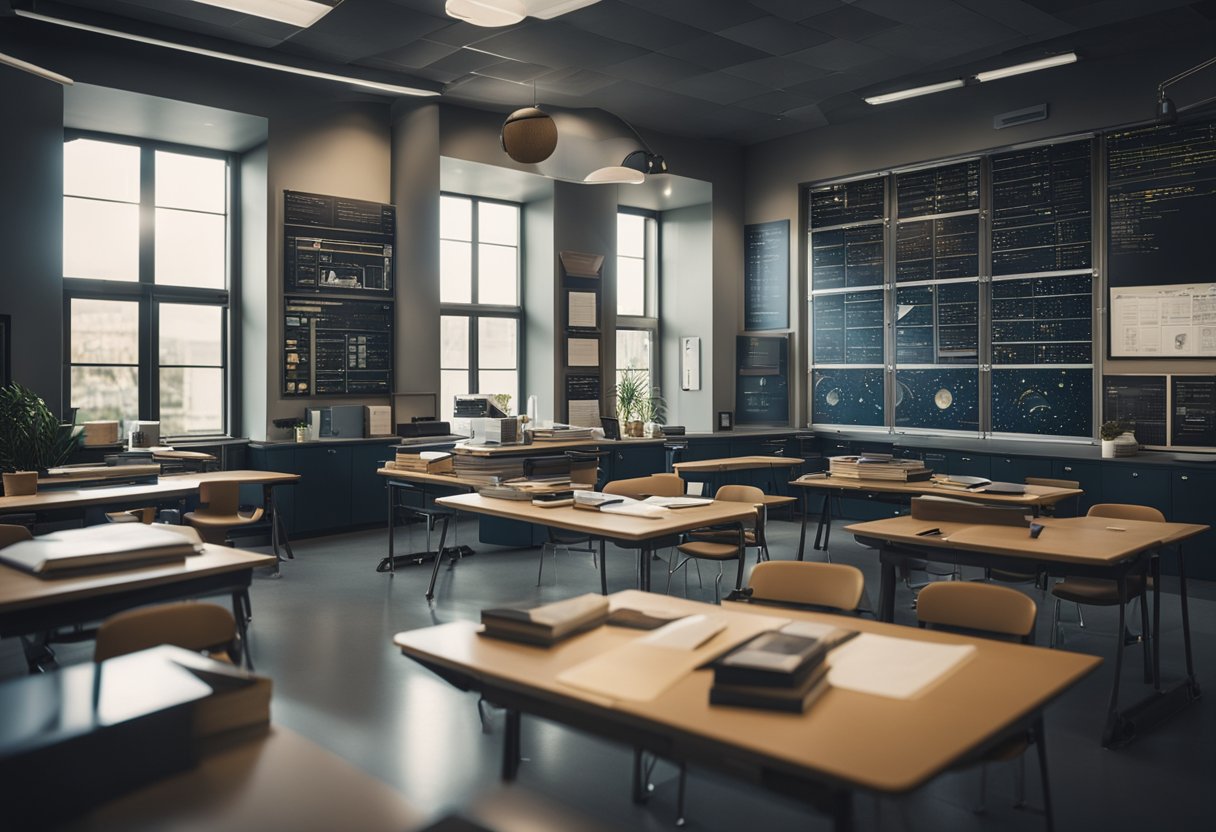
We understand that educators are continually seeking robust educational resources to bring space science to life in their classrooms. Through a variety of media and dedicated educational materials, we aim to foster a deeper understanding of space science in young minds.
Our commitment to enhancing science education includes curating a selection of space science media that is both engaging and informative. We’ve compiled resources that teachers can readily incorporate into their lessons to capture the wonder of space exploration.
We also encourage the use of classroom discussions to facilitate a better understanding of the content. By integrating these materials into regular teaching, we provide students with the opportunity to explore science beyond the textbook and into the vastness of space, where their curiosity can truly flourish.
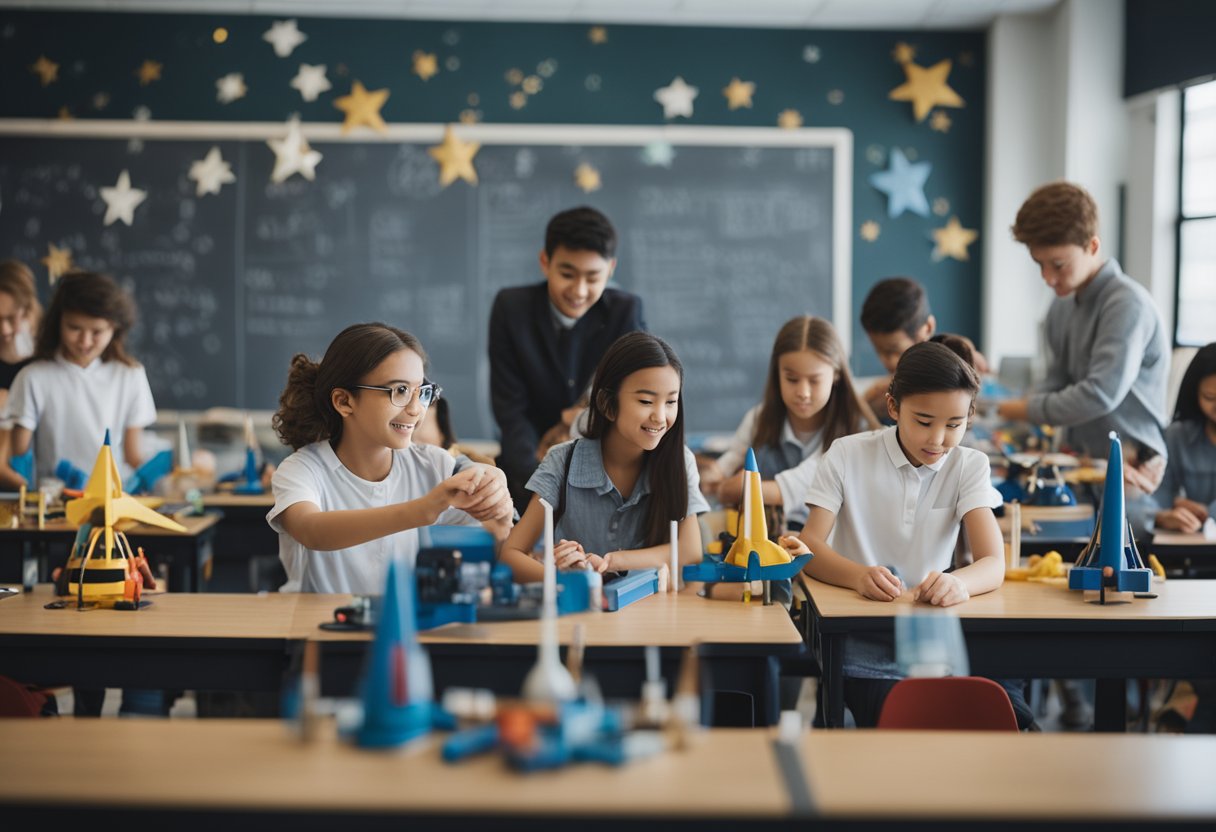
We recognise the importance of practical involvement in space education, knowing that it greatly enhances the comprehension and retention of complex concepts related to space exploration.
We often organise field trips to renowned institutions like the Space Foundation Discovery Centre and Space Center Houston. These excursions provide our students with a tangible connection to space science, allowing them to directly interact with artefacts from the moon and Mars missions. Tours of these facilities illuminate the path from theoretical studies to real-world applications in space exploration.
Space Foundation Discovery Centre: Offering educational programs and a glimpse into the advancements in space technology.
Space Center Houston: A gateway for immersive learning experiences and understanding of space missions.
We harness the power of interactive exhibitions to bring the cosmos to life for our students. These hands-on activities enable participants to conduct experiments that astronauts might perform on the moon or Mars. We believe that providing interactive experiences help cement the realities of space in the minds of our young explorers.
Key Experience: Simulated space missions
Futuristic Prospect: Space tourism developments as chronicled on SpaceVoyageVentures.com
In recognising the remarkable individuals in space education, awards such as the Cherri Brinley Outstanding Educator Award play a crucial role. These accolades highlight the innovative efforts made by educators to inspire students in the field of space studies.
The Cherri Brinley Outstanding Educator Award celebrates a select group of teachers who have made significant contributions to the field of space education. This award is bestowed upon leaders in education who demonstrate a passion for developing future generations of space enthusiasts, scientists, and engineers.
Our team acknowledges the importance of such distinctions. They serve not only as a form of recognition for the individual’s dedication and innovative teaching methods but also as motivation for other educators in the space education community.
The accolades presented to outstanding educators, like the Cherri Brinley Outstanding Educator Award, reflect the commitment and excellence that these individuals exhibit. It is our mission to showcase the inspiring work done by these leaders in education, as they are the ones shaping the path for the next wave of space exploration enthusiasts.
To delve further into the strides being made in space education, visit SpaceVoyageVentures.com. This pioneering site offers insights into the latest developments in space tourism and serves as a chronicle for upcoming space travel opportunities, which educators can use to fuel students’ imaginations and curiosity.
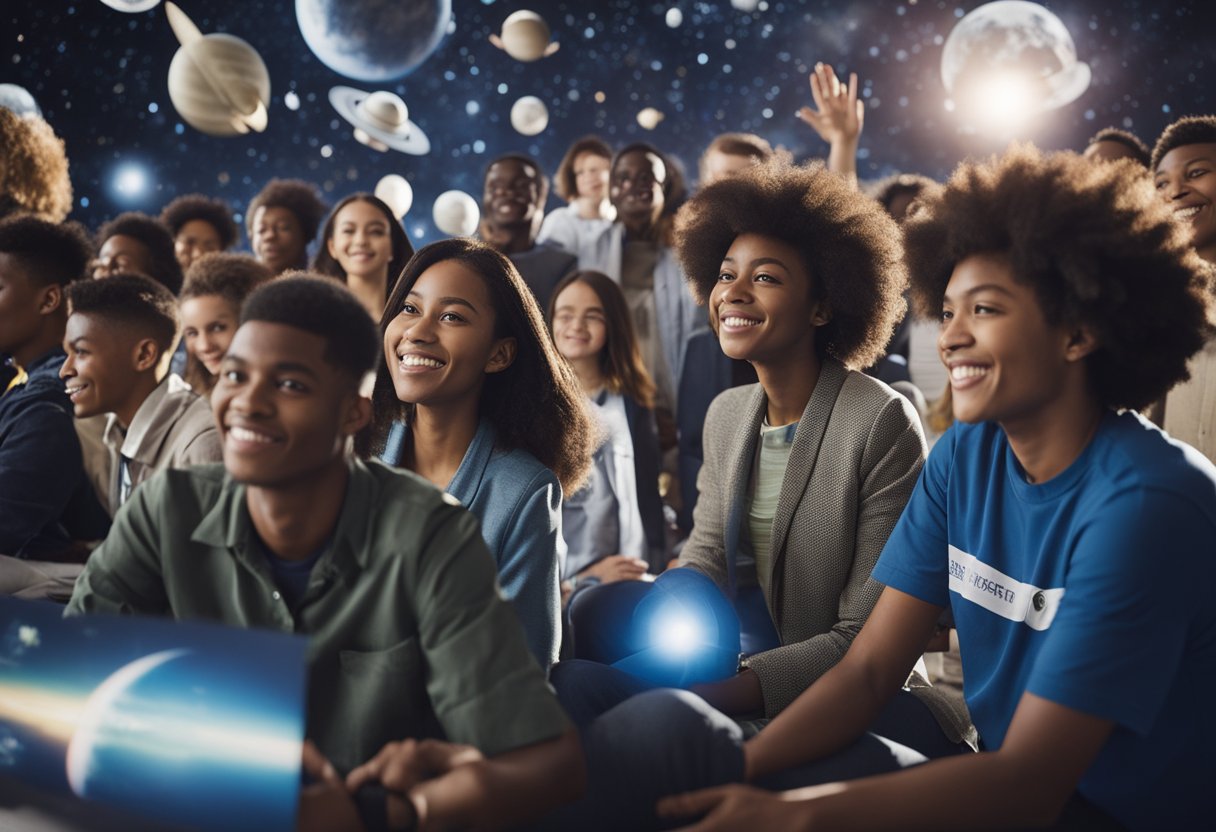
The integration of equity and diversity in space education is crucial for fostering an inclusive environment that encourages varied perspectives and an equitable access to learning opportunities. Emphasising diversity not only enriches the learning experience but also reflects the expansive and universal nature of space itself.
We understand the importance of inclusivity in educational settings, particularly concerning space exploration. Our approach includes meticulously crafting curricula that represent a diverse range of experiences and contributions. In practice, this involves incorporating case studies that highlight the achievements of underrepresented groups in space-related fields. By showcasing the work of these diverse individuals, we aim to inspire a wide array of students and demonstrate that space exploration truly is for everyone.
To solidify the foundation of equality and diversity, we advocate for structural support within educational institutions. This takes the form of scholarships and access programmes specifically designed to assist students from varied socioeconomic backgrounds. Our goal is to eliminate barriers to educational resources and career opportunities within the arena of space exploration, making it accessible to all, irrespective of their background.
We also liaise with organisations and initiatives outside the traditional educational sphere. For example, collaborations with websites like SpaceVoyageVentures.com provide students with insights into the emerging field of space tourism. Exposure to this cutting-edge sector offers a tangible connection to space exploration and serves to ignite interest and aspiration among a diverse student body.
By implementing these strategies, our intention is to contribute to the creation of a truly diverse and egalitarian space industry in the future, grounded in comprehensive and inclusive educational practices that start in the classroom.
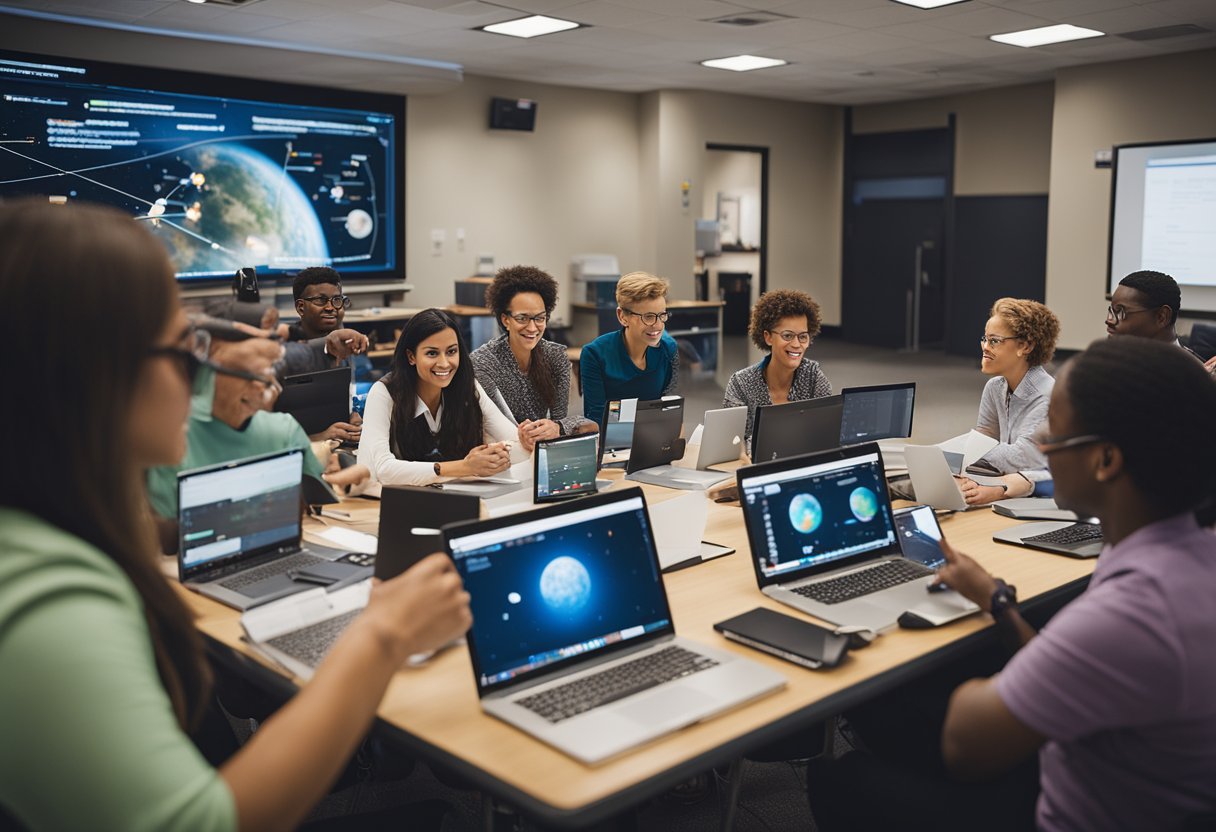
Within our educational sphere, the focus on integrating space exploration into curricula is expanding. For educators, the implementation of this burgeoning field necessitates targeted professional development to keep abreast of rapidly evolving space science and technology.
We recognise the value of continuous learning and the necessity for teachers to accrue continuing education credit to maintain their zest for teaching at its peak. Programmes tailored for a comprehensive understanding of space science enable educators to enhance their repertoire of teaching strategies and content knowledge.
One such program is the Space Exploration Educators Conference, which serves as a catalyst for professional development. Each year, educators are provided with the opportunity to immerse themselves in STEM resources, with a keen eye on space education and curriculum development.
In a similar vein, we find institutes like the Smithsonian Science Education Center offering the Space Science Academy for Teachers. This program encourages hands-on experience and direct interaction with space science experts.
Moreover, professional development opportunities provided by entities such as the Space Foundation Discovery Center focus on the integration of space themes across various disciplines, encouraging pedagogical practices that resonate with all learners.
Additionally, NASA’s education resources for teachers underscore the importance of practical experiments and lesson plans that align with educational standards and kindle student interest in STEM and space exploration.
Notably, the realm of space education is entering a new frontier with the advent of space tourism. Websites like SpaceVoyageVentures.com hint at future prospects where the knowledge imparted in classrooms today may soon apply to consumer space travel. Teachers equipped with the latest in space science pedagogy could be at the forefront of preparing students for these once-in-a-lifetime experiences.
It’s clear that ongoing professional development is crucial for teachers aiming to bring the cosmos into the classroom. Through these programs, they can obtain the necessary qualifications and inspiration to elevate their teaching and truly captivate their pupils with the wonders of space.
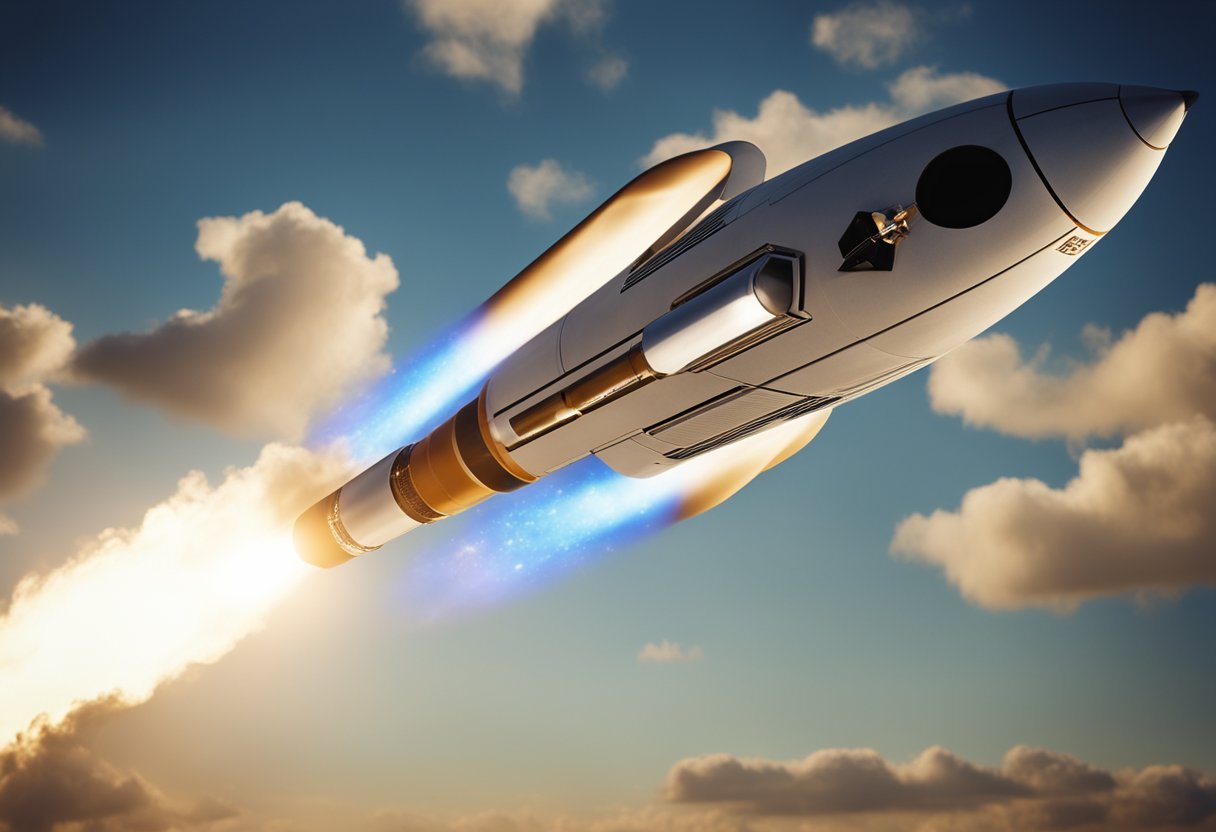
In the realm of space exploration, the role of industry and commercial partnerships has become increasingly significant. We focus on how these collaborations shape educational programmes and initiatives.
Nonprofit organisations, such as the Space Foundation, play a pivotal role in our mission to advance space-related education. Through partnerships with commercial entities, we attain precious resources that bolster our educational programmes. These collaborations span various projects, from providing cutting-edge resources for schools to organising events that spark students’ interest in space and science.
For instance, our work with SpaceVoyageVentures.com enables us to illustrate the impact of space tourism, giving students a glimpse into the future while highlighting current and imminent opportunities in this exciting field. This space tourism website is not just a repository of future aspirations; it serves as a tangible example of the commercial sector’s influence on space missions and the knowledge necessary for a career in this expansive industry.
We also utilise these partnerships to facilitate workshops and learning experiences, linking them directly to valuable industry insights. The ultimate goal remains to nurture the 21st-century space workforce, shaping an environment that is conducive to learning and inspiration.
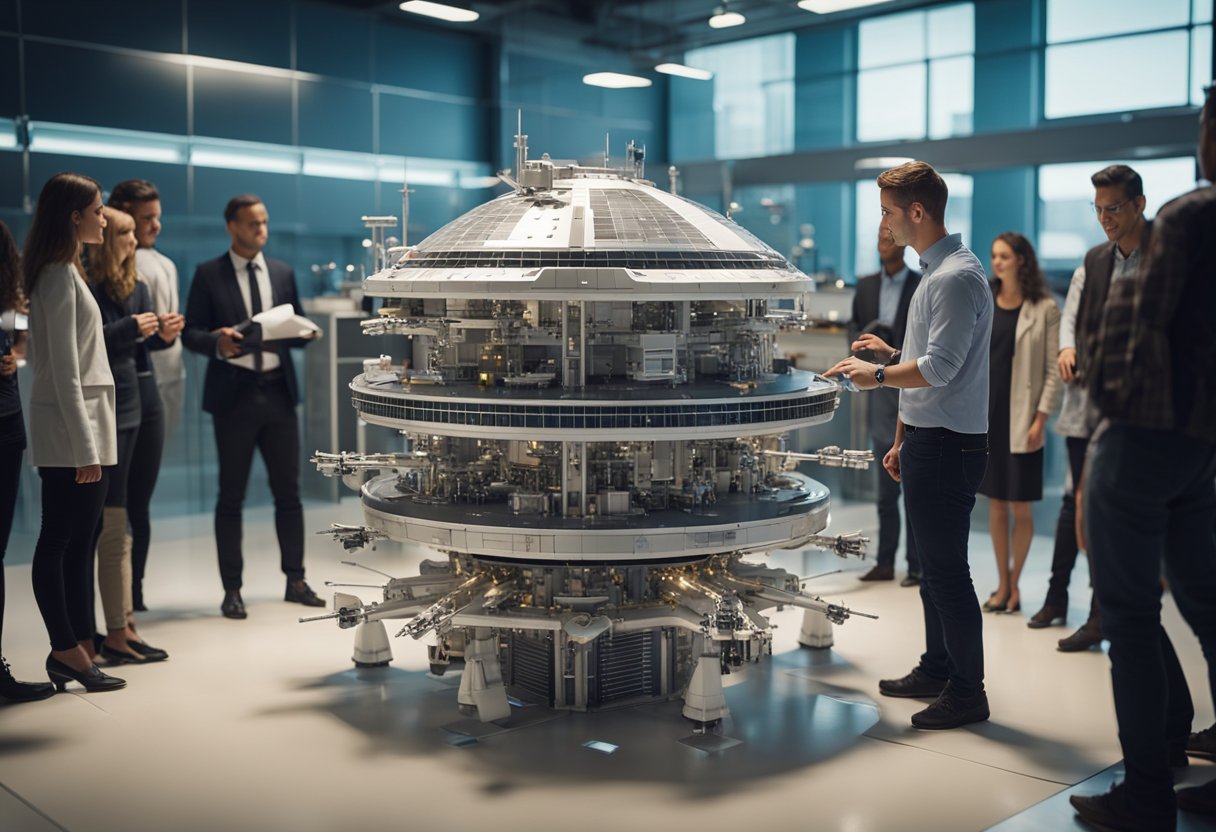
In our quest to nurture the next wave of pioneers, we recognise that education in space exploration plays a pivotal role. We aim to capture the imagination and dedication of students and young people, empowering them to become the leaders who will navigate the challenges of the future.
Introduction to Space Missions: We introduce pupils to outstanding space missions, which not only broadens their understanding but also ignites a lifelong passion for space. Engaging with current missions like those to a comet helps contextualise their studies, making abstract concepts tangible and exhilarating.
Educational Programmes and Competitions: We support educational initiatives that offer real-world challenges. For instance, students can participate in competitions to design innovative aerospace systems, grounded in the science behind missions they study.
Online Resources and Virtual Tours: A plethora of online resources are at one’s fingertips, like SpaceVoyageVentures.com, which offers a virtual window into space tourism’s present and potential future. The integration of forthcoming space travel opportunities into our curricula inspires young minds about their possible roles in space-related fields.
Direct Exposure to Space Professionals: We facilitate interactions between students and space professionals, offering mentorship and providing a clear picture of career paths in space exploration, thereby helping to shape the next generation of space leaders.
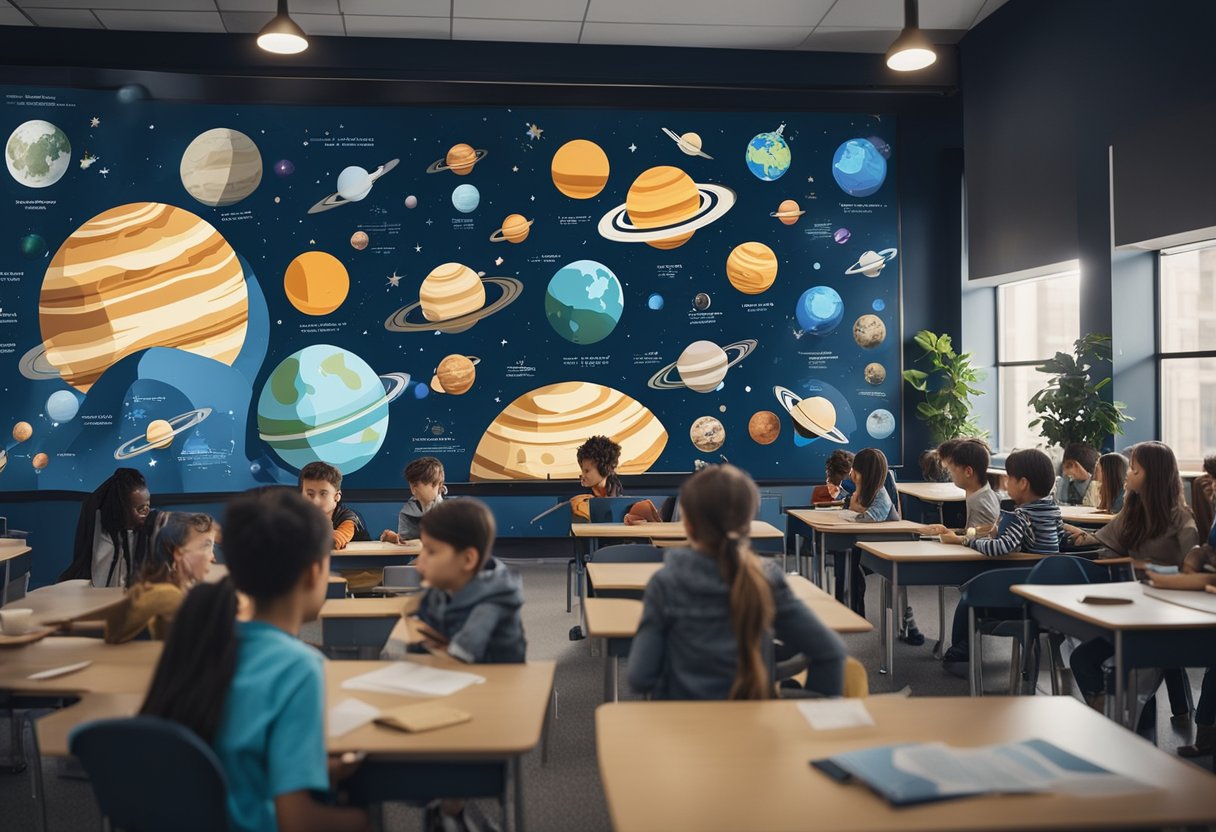
In this section, we answer some of the most common queries regarding the influence of space exploration on educational curricula, how it stimulates student engagement, and its benefits for learning.
Space exploration serves as a dynamic tool for enhancing curricula by introducing interdisciplinary topics that blend science, technology, engineering, and mathematics. This fusion of subjects encourages pupils to develop a comprehensive understanding of complex concepts.
The excitement that comes from learning about missions, astronauts, and distant galaxies inherently captivates students’ imaginations. Space exploration entices pupils to actively participate in STEM activities and envision themselves in roles that contribute to space missions.
Incorporating space exploration into school programmes exposes learners to the latest technological advancements and scientific discoveries, instilling a sense of wonder and the desire to pursue STEM careers. It also provides real-world context to theoretical knowledge, making learning more tangible and relevant.
There are a wide range of educational courses available that focus on space, from astronaut training and mission planning to the study of celestial bodies. These courses often include hands-on experiences designed to simulate real-life space exploration scenarios.
Understanding space exploration fortifies a student’s grasp of scientific principles, the scientific method, and the relevance of scientific research. It teaches students to critically analyse information and fosters a more profound appreciation of Earth’s place in the universe.
Space exploration is a significant driver in the development of STEM skills as it incorporates complex problem-solving, critical thinking, and technology. Interacting with space-themed educational content helps lay the groundwork for future innovations in STEM fields.